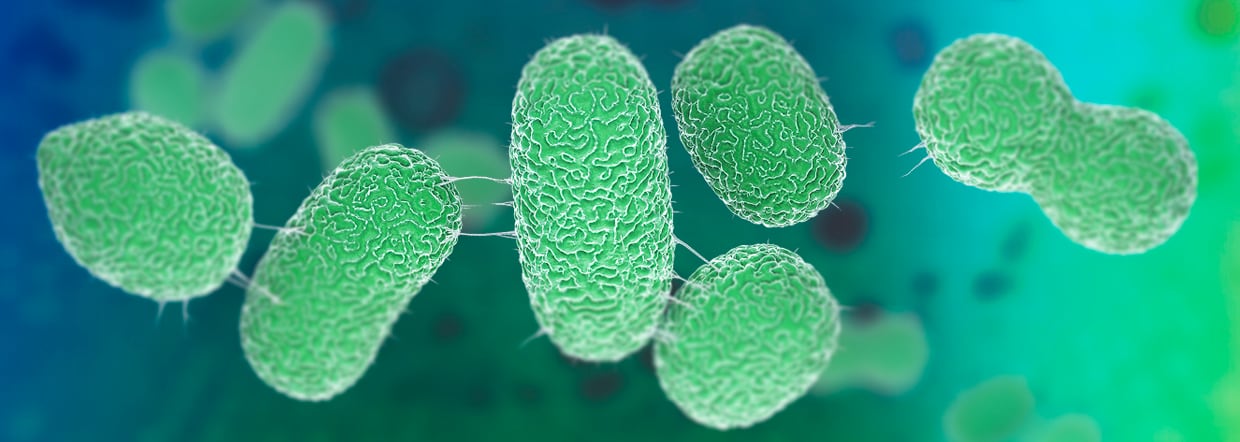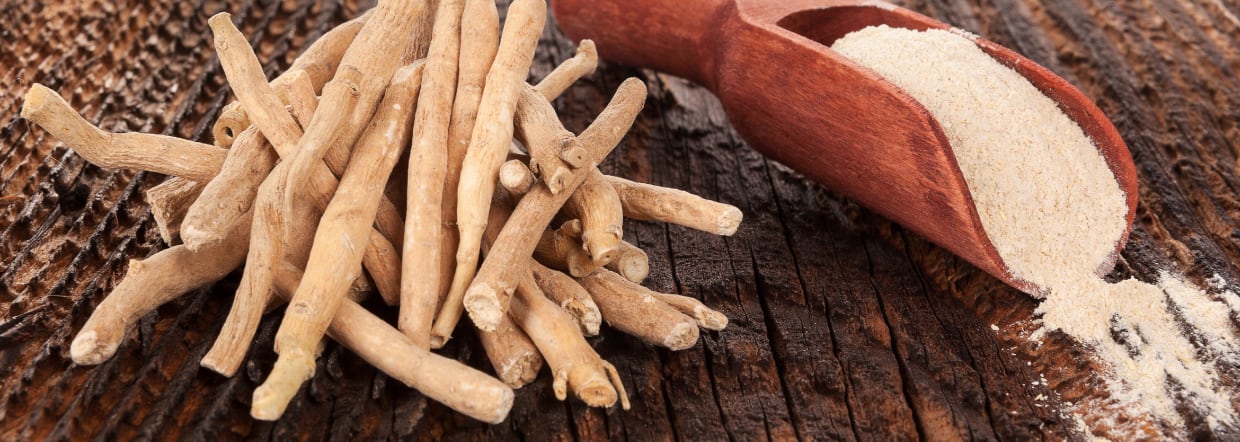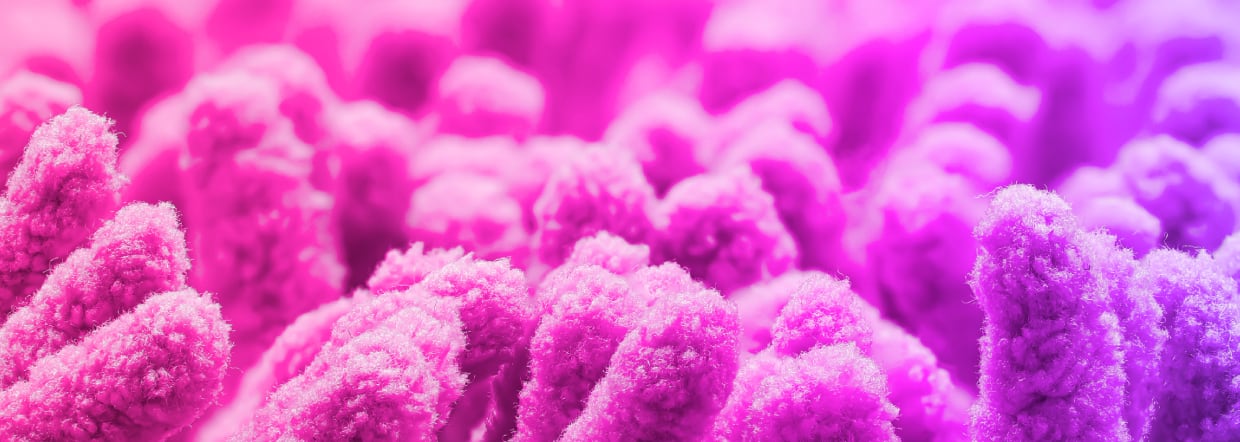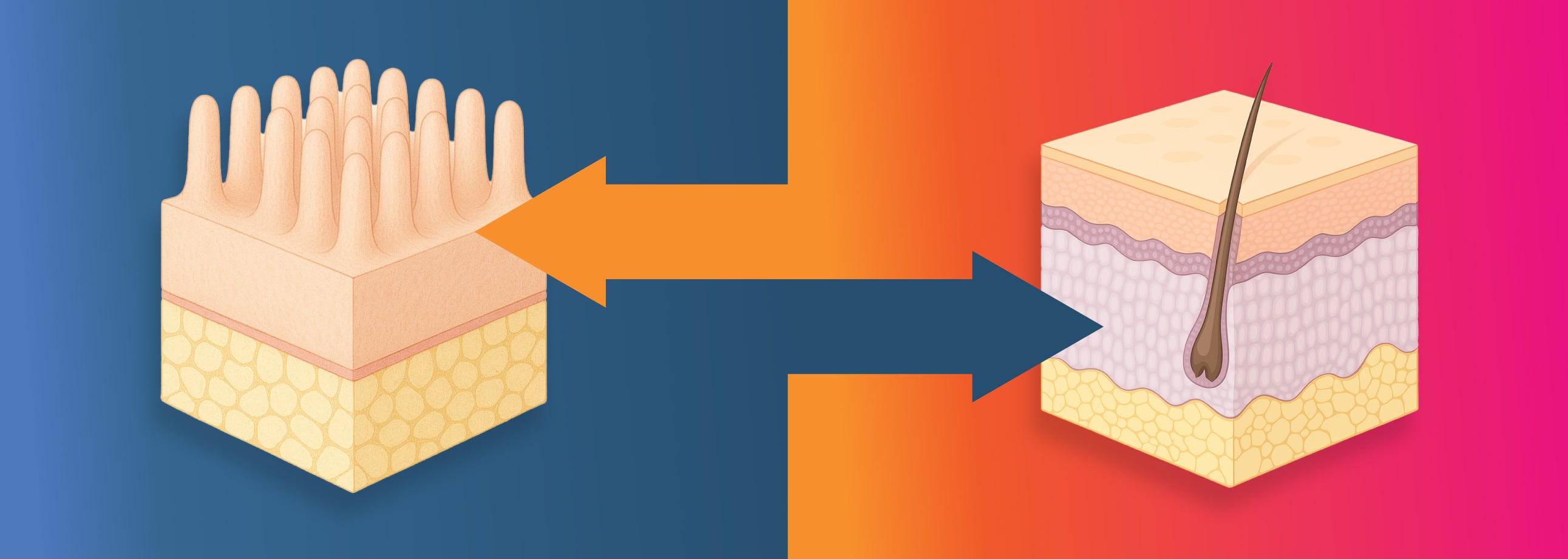As more attention focuses on the microbiome and impact of probiotic supplementation, scientists have expanded their search for new ingredients that could exert even more powerful health benefits.
These next-generation probiotics (NGPs) are being explored as biotherapeutics that could impact multiple chronic conditions.¹ One such NGP is Akkermansia muciniphila, a gram-negative anaerobic bacterium that colonizes the intestinal mucosa and impacts the gut mucosal layer. Originally characterized in the early 2000s, it degrades mucin and plays a role in gut barrier maintenance, immune regulation, and production of short-chain fatty acids (SCFAs) that regulate metabolism.²
The first work in Akkermansia dates back only a couple of decades, with researchers identifying multiple strains with possible health benefits. One such strain, Akkermansia muciniphila BAA-835, appears to improve glucose tolerance, reduce fat mass, and decrease inflammation, in addition to supporting the gut barrier and energy metabolism in the gut.³
However, anaerobic bacteria such as Akkermansia have proven difficult to cultivate under industrial conditions due to the requirement of anaerobic conditions and the need for specific growth factors, both of which can increase the complexity and cost of production. There are also regulatory considerations around bringing these new ingredients to market.
Thomas Guilliams, PhD, is the founder and director at The Point Institute-Stevens Point and serves as senior scientific advisor to Vidya. Over his career in the health care and probiotic space, he has worked with multiple strains and clocked the evolution of the NGP category. He observes that while there is no consensus on the term, these organisms may be more targeted for their ability to affect important health outcomes but also require some ingenuity to bring to market.
“Akkermansia muciniphila is one of the first of these NGPs – and keystone species – to be commercially available, although understanding how it will be a therapeutic game-changer is still being established with clinical trials,” he says. “Since none of these trials have delivered ‘live’ organisms that were prepped in a way to protect them, Vidya is doing the work to establish this.”
This brings up the definition of probiotic: Live microorganisms that provide health benefits when consumed in adequate amounts. Whether first or next generation, probiotics have been measured in CFU, or colony forming units, which was designed to measure live cells that are available to culture.
New technologies, such as flow cytometry measures of active fluorescent units (AFU), are now being used to enumerate probiotics. While this technology has the ability to measure viable cells that may fail to form a colony using the CFU counting method, it also is prone to count non-viable cells as ‘alive’, simply because they have an intact membrane. This can make it challenging to compare the necessary dosage levels of different strains, requiring formulators to review study findings to ensure effective dosages.
Vidya developed NuGensia® to address the market need for live, stable Akkermansia muciniphila. The VHAKM strain has a 97% similarity to the established ATCC strain BAA-835 (via whole-genome sequencing) after fermentation.
Produced via fermentation, the researchers at Vidya consider temperature, density, and pH during the multi-step process for maximum strain conservation. As Akkermansia feeds on mucin in the human gut, during fermentation of the strain, mucin is required, which is usually derived from pork. However, Vidya designed a plant-based gum with a similar structure to gut mucin to use in the production of NuGensia®, offering a crucial point of differentiation for the global market.
Its next innovation was a patent-pending microencapsulation process to protect the Akkermansia from oxygen. Plant-based starch is added to the spray during the spray-drying process; after wetting and spreading, the starch hardens to a protective shell around the particle.
This improves stability, which has been shown in testing to be 24 months in optimal delivery formats in which water activity is minimized. NuGensia® is offered in live form, at strain strength 100B CFU/gm, with a recommended daily dose of between 5B, 7B, and 10B CFU. It has also been self-affirmed GRAS, with NSF and Non-GMO Project certification in process.
Further, Vidya is investing in the scientific research to ensure NuGensia® is delivering on the promise of NGPs. As noted earlier, the health effects of any probiotic are strain-specific, and Akkermansia is no different. Further, when exploring the benefits of ‘next generation’ probiotics, offering a comparison to a ‘first generation’ allows companies to promote not only the health effects but the incremental benefits.
In Vidya’s most recent human clinical trial, researchers from Rajalakshmi Hospital and Research Centre, Bangalore, conducted a randomized, double-blind, placebo-controlled, parallel, multi-center, phase 3 study in patients with irritable bowel syndrome (IBS). The team compared the test product (Akkermansia muciniphila VHAKM614) at 5B CFU/capsule to not only a placebo, but also a control capsule combining Bifidobacterium lactis (2B CFU/capsule) and Lactobacillus plantarum (3B CFU/capsule). Patients received one capsule prior to each meal for 90 days.
Participants receiving Akkermansia showed a 47% reduction in Digestive Symptoms Frequency Questionnaire (DSFQ) scores, compared to a 22% reduction in the control group and no meaningful change in those receiving the placebo. Both active interventions had positive results in the quality-of-life (QOL) domains, with greater benefits in the test group in addressing activity limitations, coping ability, and global symptom severity.
In addition, those subjects receiving Akkermansia had notable improvements in metabolic and liver health parameters. Researchers concluded intervention with NuGensia® strengthened the gut barrier, lowered inflammation, improved bowel movement and stool consistency, and improved symptoms of IBS including pain, cramping, and bloating.
Vidya continues to invest in research around NuGensia®, focusing on some of the most critical health areas. An in vitro assay conducted with the University of South Florida examined the impact of NuGensia® on the secretion of GLP-1. Researchers found Akkermansia muciniphila cells produce metabolites such as P9 that can trigger L-cells to produce GLP-1.
In the body, this could address blood sugar and insulin levels; clinical research is underway exploring the impact on insulin resistance, lipids, blood glucose and inflammation. An additional trial will build on the QOL findings to dive into the impact of NuGensia® on stress, sleep, cognitive focus, and general quality of life.
Also on the horizon is the completion of the 7B and 10B studies, with data expected to be available by the end of October 2025.
References
- Al-Fakhrany, O.; et al. Next-generation probiotics: the upcoming biotherapeutics. Mol Biol Rep; 2024, 51, 505.
- Chiantera, V.; et al. A Critical Perspective on the Supplementation of Akkermansia muciniphila: Benefits and Harms. Life; 2023, 13(6), 1247.
- Luo, Y., et al. Rational consideration of Akkermansia muciniphila targeting intestinal health: advantages and challenges. npj Biofilms Microbiomes; 2022, 8, 81 (2022).





